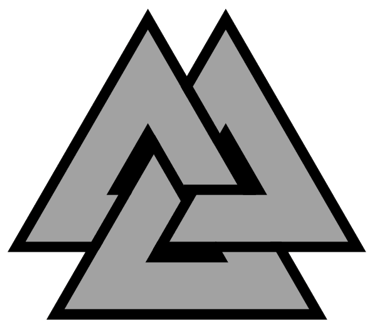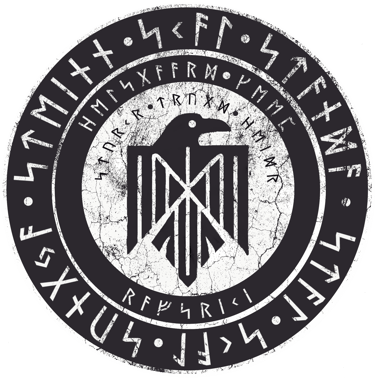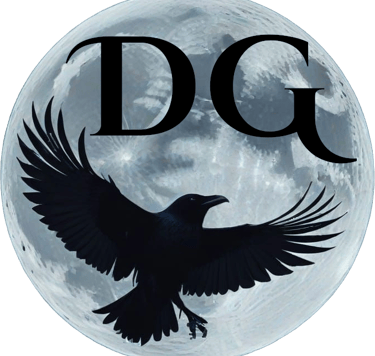
Rosetta Stone
The Rosetta Stone, as ancient as time itself, served as a key to translate words and define ideas, enabling communication between people of different languages. The Rosetta Stone (Glossary) will assist in the language used in the stories of Hel.
Aeldoria (AL-do-REE-a)
The Aelfinn Kingdom where the Aelfs live.
Aelf (Alf)
Original Norse texts refer to them as Álfr. In this context, they are a race of humanoids whose notable characteristics include platinum blonde hair, tall stature, slender build, extreme physical coordination, long pointed ears, and a general disdain for all other races and cultures. They are excellent healers, adept at Reiki and the use of crystals, and their archery skills help them develop an innate mastery of geometry and mathematics. Note: Álfr is the authentic Old Norse term from the Eddas.
Aelfs (Alfs)
Plural form of Aelf. Note: Álfar is the authentic Old Norse plural form.
Aelfic (ALF-ick)
The language of the Aelfs.
Aelfinn (ALF-fin, with a prolonged "n")
Possessive form of Aelf.
Annarrslag (AN-narr-slahg)
A disciplined martial technique that condenses Qi/Ond (life energy, “spirit-breath”) into a dense, visible sphere between the hands, then drives it forward as a physical impact rather than spellcraft. When released—often with a sharp syllable and a palm-thrust—it strikes like lightning made solid, delivering a concussive shock that can scramble nerves and hurl a target backward.
Ást mín (AST MEEN)
Term of endearment. Literally "my love."
Bikkja (BIK-kya)
A common word in modern Icelandic (meaning "female dog" or "bitch"), and it comes directly from Old Norse.
Bier (BEER)
A bier is a wooden platform or frame—often made of logs or heavy timbers—used to support the body before or during cremation. In Norse traditions, it might be elevated and interlaced with herbs, branches, or symbolic items, depending on the status of the deceased.
Blood Eagle
A brutal form of execution where the victim's ribs are separated from the spine through a long incision in the back on either side of the spine and the lungs extracted through the incisions. This term doesn’t appear in surviving Old Norse texts verbatim, but the concept and its descriptions show up in sources like the Orkneyinga saga and Norna-Gests þáttr, especially relating to the legendary execution of enemies (e.g., Aella of Northumbria).
Blótstafn (BLOHT-stahvn)
A raised fist with index and pinky fingers extended (like the metal "rock on" sign). Meaning: In Norse culture, this would be used to mock someone as a follower of Loki, a Jötunn-lover, or a dishonorable oathbreaker.
Bodkin (BOD-kin)
A type of needle arrowhead designed to pierce armor. Developed in the Late Roman Iron Age, they were used throughout the Viking Age into the Middle Ages. See Bodkin Point.
Bretahaf (BRET-a-HAHF)
The Breta Sea, which surrounds the land of the Britons and separates it from the Norðrsær.
Briton (BRIT-on)
One who inhabits Breta (later known as Britain, then England).
Brú (BREW)
A chokepoint, usually a land bridge over a moat, river or ravine.
Crenel (KREN-el)
One of the open spaces or indentations in the top of a battlement or fortified wall, used for shooting or observation. Essentially, it's the gap between the solid parts (merlons) of a battlement.
Dagmál (DAG-mahl)
The first meal of the day, similar to breakfast. It was usually eaten around 8 or 9 o'clock in the morning, after the day's work had begun. Dagmál often consisted of leftovers from the previous night's Náttmál, such as stew, along with bread, fruit, porridge, or sometimes buttermilk.
Dagmark (DAGH-mark)
The Scandinavians divided the day into eight sections, marked by the sun's position relative to the horizon, which varied widely between summer and winter.
Draugr (DROW-gr, with a guttural "G" and a trilled "R")
The reanimated corpse of the deceased inside the burial mound. Said to retain some intelligence and had the ability to swell up in size, the only way to kill them (again) was decapitation or burning.
Draugar (DROW-gar, with a guttural "G" and a trilled "R")
Plural of Draugr.
Drekahǫnd (DREK-ah-hond, with a nasalized or long "o" sound)
Dragon's Hand or Hand of the Dragon. A Dragon's emissary. AKA Drekahond.
Dûrgath (DOOR-gath)
Dwarfinn Kingdom where the Dwarfs live.
Dwaelf (dw-ALF)
A contraction of Dwarf and Aelf – a pejorative term that can lead to violent physical confrontations, up to, and including death.
Dwarf (DWAR-f)
A race of humanoids whose notable characteristics include short stature, thick build, innate understanding of metallurgy, mechanical creativity, and excellent vision in the dark mines.
Dwarfs (DWAR-fs)
Plural form of Dwarf.
Dwarfinn (DWAR-fin, with a prolonged "n")
Possessive form of Dwarf.
Fukk (FUK)
Imperative conjugation of Fokken. AKA "Fuck!"
Fukkr (FUK-ker with a rolled "R")
Old Norse word meaning one who breeds, derived from the proto-Germanic word "Fokken. It applied to animal breeding but grew to be used with vulgarity. AKA "Fucker!"
Fukken (FUK-en)
A contraction of "Fukkandi," the present participle of Fukken, AKA "Fucking."
Fyrnrót (FURN-root, furn with a rolled "R")
A mystical herb native to the cold, untamed regions of Norðrlönd that can induce visions.
Gasthaus (GAST-house)
A tavern with simple guest accommodations, usually above the tavern.
Goðar (GO-thar, with a soft "th" sound and rolled "R" sound at the end)
Plural of Goði. Also spelled Gothar.
Goði (GO-thee, with a soft "th" sound)
Someone responsible for overseeing local religious practices, including conducting rituals and maintaining sacred sites. Also spelled Gothi.
Gorathökk (GOR-a-THECK)
The land of the Orcs on the other side of the Gorathökk Sea. The Orcs are viscous and live to fight.
Granat (GRAH-naht)
Grenade. Small handheld explosive. Based on the Latin "Granatus."
Half-moon (Half moon)
1. The state of the moon when it appears to be half-full.
2. The time it takes to go from a full moon to a no-moon and vice versa, or about 14 days.
Haustblót (HOWST-bloht)
Autumn feast celebrating the fall harvest and animal sacrifice to appease the gods throughout the winter.
Hnefatafl (NEF-uh-Tah-full)
An ancient Norse strategy board game, often referred to as "The King's Table." It was widely played in Scandinavia before chess was introduced. Some reports indicate it goes back to the 4th Century.
Hel (HELL)
1. Hel, or Hela, is a goddess who presides over the underworld realm of the dead, also called Hel. She is typically depicted with a face that is half-beautiful and half-decayed, reflecting the duality of life and death. Due to the dragon wars with Ravnsríki, it was believed that the volcanic plain far west of Helsgaard, which was home to Dragons, was the entrance to Hel.
2. The domain of Hela where those who died of old age, illness or cowardice. Inhabitants were known as Hel-walkers or Draugr.
Helgrindi (HEL-grin-di, with a rolled "R" sound and a dental "d")
Refers to the great gate or fence that serves as a primary entrance to Helheim, the underworld realm ruled by the goddess Hel.
Helsgård (hels-GARD)
This name refers to the entire region encompassing both the Helsgaard Plateau and the verdant valley that lies to the west, between the plateau and Hel. This valley is known as the Helsgaard Frontier. A clerical error a century ago corrupted the original runes. This changed the name from Helsgarðr ("Hel's Yard") to Helsgård ("Hel's Homestead").
Hersir (HAIR-seer)
The leader of a small group of warriors. Later, during the Viking Age, it included being a landowner and executing administrative duties, such as collecting taxes and enforcing laws.
Höfn (HEW-fn)
A haven or safe place.
Hvelpr (HVOL-pr, a breathy "HW" ending with a rolled "R" sound)
Whelp, or puppy, and by extension a cub (e.g., lion’s/tiger’s/wolf’s young). Figuratively it can mean "urchin/brat." Can be used as a nickname/term of abuse in some contexts.
Ísdolkr (EES-dolkr, with a soft "K" and rolled "R" sound at the end)
Means "ice dagger," a famed but never-seen dagger made of quartz crystal that can be used to overcome the evil magic of the Dark Stone.
Jarl (YARL)
An elite, landowner, or wealthy person.
Jarnøskahrafn (YARN-uh-ska-RAHF-en with a rolled "R" sound)
Literally, "Iron Raven." It is a radical secret society in Jarnborg driven by revenge to exterminate the Dragons in retribution for losing the war 300 years earlier. The difference in spelling and pronunciation of Ravn versus Rafn is due to geographic isolation.
Jörð (YER-th, with a soft "th" sound)
Means "Earth" in Old Norse. Norse mythology describes her as a giantess (Jötunn) and personifies the Earth—a similar concept to Gaia in the Gaia Theory.
Karl (KARL)
An ordinary person.
Karlar (KARL-ar)
Plural of karl.
Kobold (KOH-bold)
A mischievous and evil spirit inhabiting mines and caves. While often depicted as small and goblin-like, they could be powerful and vicious when angered.
Kunta (KUN-tah)
This is another term with ancient Germanic roots, found in Old Norse and many other Germanic and Scandinavian languages. Like "cunt" in American-English, it is a vulgar term for the vulva.
Líf (LEEF)
Life. Named after one of two humans who survived Ragnarok, it now means long life and survival.
Loki (LOH-kee)
A cunning trickster god in Norse mythology. He is known for his chaotic nature and aiding and hindering the other gods.
Mandos (MAN-dose)
The Aelfinn afterlife realm, where the soul reflects on their previous life before reincarnation.
Miðgarðr (MI-th-garth-er, with a soft "th" and rolled "R")
Also known as Midgard, it is centrally located among the Nine Realms, serving as a pivotal point that connects the various worlds. Its position is crucial to the overall structure of the Norse cosmos, which is often visualized as a vast tree, Yggdrasil, with its roots and branches extending into different realms. Its central position underscores its importance as the realm where humans reside and interact with the divine and the supernatural. It is a bridge between the various realms, reflecting the interconnected nature of Norse cosmology and the belief in the interplay between the mortal and immortal worlds.
Miðsumarblót (MITH-soo-mar-blote)
A blót (sacrifice/ritual) to honor the gods, ancestors, and spirits at the height of the sun's power.
Moon (Moon)
A unit of measure that is approximately one month long. AKA "month."
Náttmál (NAT-mal)
The last meal of the day, similar to dinner or supper. It was typically eaten around 9 o'clock in the evening, after the day's work was done. Náttmál often featured freshly prepared food, such as stews made with meat or fish and vegetables. Wealthier households might have had more variety, including different types of meat. Ale was a common drink served with Náttmál.
Necro (NEC-row)
Short for Necromancer.
Niðingar (NEE-th-ing-ar, with a soft "th" and a rolled "R")
A word for “those without honor,” or “cursed cowards,” or “men damned by shame.”
No moon (No moon)
The time of the month when the moon is not visible. AKA "new moon."
Nordlund (NOR-th-ewnd)
The peninsula encompassing Aeldoria, Ravnsríki, and Dûrgath.
Norns (NORNS)
The Norns were the Norse goddesses of fate, represented by three sisters named Urd, Verdandi, and Skuld. They lived underneath the world tree and wove the tapestry of fate.
Odin (Óðin) (pronounced OH-thin, with a prolonged "O" and a soft "th")
Formally written as Óðinn. Chief deity of the Norse pantheon. God of war, wisdom, death, poetry, and prophecy. Óðinn is invoked during oaths, curses, war cries, and sacred rituals. He is both revered and feared, representing the complex duality of fate and battle.
Odin's Merk (OH-thins Merk, the "th" is soft and a prolonged "n")
One of the currencies of Ravnsríki. It's a coin made of gold, stamped with Odinn's face, weighing about 30 grams, or 1 ounce.
Ond (OND)
Life energy or “spirit-breath.”
Pikk (PICK)
A vulgar slang word for a penis. It's also an insult to someone you don't like, especially a boy or man.
Rôst (ROHST)
How long one marches before taking a rest - about a mile.
Rass (RASS)
A vulgar slang word for the posterior that refers to a jerk or an idiot.
Rasshol (RASS-Hole)
A vulgar slang word for the posterior and used about a jerk or an idiot.
Ravnsríki (RAVNS-ree-kee, with rolled "R"s)
The name of the Human kingdom, which roughly means "Raven's Realm" or "Raven's Domain."
Sambúð (SAHM-booth)
Means living together or cohabitation. It can imply a domestic relationship or union, possibly even without formal marriage. It's the closest term to describing a long-term partnership or committed domestic life.
Seithr (SEY-ee-thr, with a trilled "R")
A type of magic involving communion with the dead practiced in Norse society. AKA Seeress. Reference.
Skål (SKOHL rhymes with "bowl," but with a shorter, crisper "o" sound)
A traditional Scandinavian toast, meaning "cheers" in modern usage. Historically, it was more than just a drinking salute, it symbolized camaraderie, respect, and good fortune. The word originates from Old Norse skál, meaning "bowl," referencing the communal drinking vessels shared among warriors and friends during feasts.
Skalds (SKAHLDS)
The poets and storytellers of the Norse world, skilled in composing and reciting verses that praised kings, warriors, and gods. They preserved history, recounted heroic deeds, and wielded words as both entertainment and political influence.
Skitkarl (SKIT-karl)
Translates to "shit-fellow" or "dung-man." It's a fancy Old Norse way of calling someone a "jerk" or a "good-for-nothing." AKA "Bastard." See also Skitr and Karl.
Skitkarlar (SKIT-kar-lar)
Plural of skitkarl.
Skitr (SKIT-er, trilled "R")
Means "shit" or "dung." It can also be used figuratively to mean something worthless or contemptible.
Solar (SO-lar)
A room well-lit by many windows.
Tagelharpa (TAH-gel-HAR-pa)
The name means "horsehair harp because the strings are made from horse hair.
Tanrite (TAN-rite)
A combination of an unknown white crystal and a shiny metal powder that explodes when exposed to sudden impact.
Ting (TING)
An assembly or governing council in Old Norse and other Germanic societies. It was both a political and legal institution—a mix between a parliament, a court, and a public forum. The þing was central to Norse identity. It embodied the ideal of free speech and collective decision-making in a warrior society. Participation was both a duty and a right of free people. AKA Þing.
Thrall (THRAWL, rhyming with brawl or maul with a strong "TH" as in thorn)
The actual spelling is þræll. Means "slave." Enthralled is to be enslaved.
Torc (TORK)
A torc is a rigid, typically metal neck ring, often open-ended, that was historically worn by various Germanic cultures.
Unter (UN-ter)
Meaning "below" or "under." When used as a prefix to a city name, it denotes the ghetto or an impoverished area.
Valknut (VALK-noot)
Three intersecting triangles representing the Knot of the Slain. It is associated with death, rebirth, the afterlife, and the journey to Valhalla. See Valknut.
Várblót (VOR-bloht)
Spring feast celebrating emerging from winter's embrace and animal sacrifice to appease the gods and bring good fortune and abundant harvests. See also Várblót.
Vid hamri Thors (VID ham-ree THORS, with a soft "TH")
Literally "By Thor's Hammer"–a severe curse.
Aelfic—The Tongue Between Worlds
Spoken by the Aelfs and those who’ve walked too long beneath the stars, Aelfic is a language of soft edges and sharp intent. Its melodies carry through forests like whispers on cold wind, yet beneath its beauty runs a current of steel and shadow. Each word bears the weight of ages—some are blessings older than kingdoms, others curses meant to outlast the dying breath.
Ael va’rin (Ayl-VAH-rin)
"It is done." Spoken with finality, especially after killing a Necromancer, sealing a fate, or making a painful decision.
D’ra vel Aenn (Drah-vel-AYN)
"Let it be undone." Used in grief, regret, or desperation. Said quietly, like a prayer.
Daemir (DAI-mir)
Assignment of condemnation. "Damn" or "damned."
Goheno nîn (go-HEN-oh NEEN)
Have mercy on me.
Haerathen (HAIR-uh-then)
A sacred term: "The price is paid." Used after loss, vengeance, or sacrifice. Often spoken over a fallen ally.
Hrindr (HRIND-er)
"Strike!"
Myrren sol thae (MEER-ren sol THAY)
"I am of two worlds."
Nareth (NAH-reth)
"No! Stop! Danger!" Rooted in older Aelfinn warning cries. Often used to halt a charge, warn of incoming danger, or break a spell of madness. Has an emotional bite somewhere between "No!" and "Abort!"
Ni’valrenn (Nee-VAHL-ren)
"I am not ready." Whispered when overwhelmed, facing visions, or the approach of fate.
Skaldvárr (SKAHLTH-var)
"Oathbreaker of the old blood." A brutal insult. Used for betrayers, cowards, or horrors.
Skylda mér (SKYALDA mer)
"Shield me."
Téla sil Naevarr (TAY-lah sil NAY-var)
"Daughter of the silence."
Tharnak (THAR-nahk)
A quiet, venomous curse AKA "Damn the stars" or "Damn this fate."
Vael akthrúen (VAYL ack-THROO-en)
"I walk between." Implies becoming something else, such as a Seithr, changeling, or hybrid.
Vétskorr (VET-skorr)
"Desecrator." Used for Necromancers or anything that perverts natural life.
Rosetta Stone - Aelfic Addendum

Journey
Explore the tales of life in Helsgaard Keep.
Keep in Touch!!!
Copyright ©2024-2026 Digital Grid, LLC. All rights reserved.




